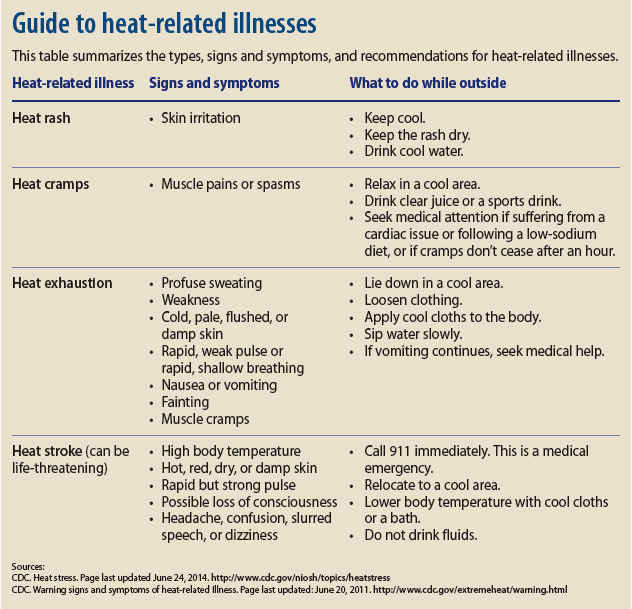Almost everyone wants to enjoy the outdoors, particularly on sunny summer days. Outside activity is a pleasurable way to get a daily dose of vitamin D. However, if sun safety is not observed, the sun can cause serious physical harm.
Sun damage to the skin and eyes and heat-related illnesses can affect anyone, but particularly vulnerable are outdoor workers, enthusiasts, and athletes; the elderly, newborns, and infants; chronic disease sufferers; and individuals taking certain medications.
According to the American Cancer Society, skin cancer is the most common cancer in the United States.
A major risk factor for skin cancer is excessive ultraviolet (UV) exposure, whether emitted from the sun or an indoor tanning source. Intentional tanning is not recommended. The Centers for Disease Control and Prevention (CDC) warn against using a tanning bed, booth, or sunlamp. These devices can cause serious skin cancers.
Below are some tips for sun safety.
- Wear protective clothing. Cover bare skin with long sleeves and pants. Wear a hat with a brim that protects the face, ears, and back of the neck. Certain brands of clothing provide UV protection and are certified with a numerical protection.
- Seek shade. Be aware of the surroundings and find shade under a structure or tree. Carry an umbrella or other covering for on-the-go shade.
- Use sunscreen. The National Institute of Occupational Safety and Health (NIOSH) advises wearing sunscreen of at least SPF 15, which protects against UVB radiation. To protect against UVA, NIOSH recommends using sunscreens containing Mexoryl, Parsol 1789, titanium dioxide, zinc oxide, or avobenzone. If individuals have had a reaction to sunscreen in the past, they should contact a healthcare provider for information on products with different ingredients. Remember to reapply sunscreen frequently, particularly after perspiring or swimming. Ensure sunscreen has not expired.
- Stay hydrated. Cool water is usually best, although sometimes a fruit juice or sports drink may be needed. Avoid alcoholic beverages.
In addition to taking these precautions, know the signs and symptoms of heat-related illnesses and how to respond. (See Guide to heat-related illnesses.)
Holly Carpenter is the senior staff specialist in the Nursing Practice and Work Environment Department at ANA.


















